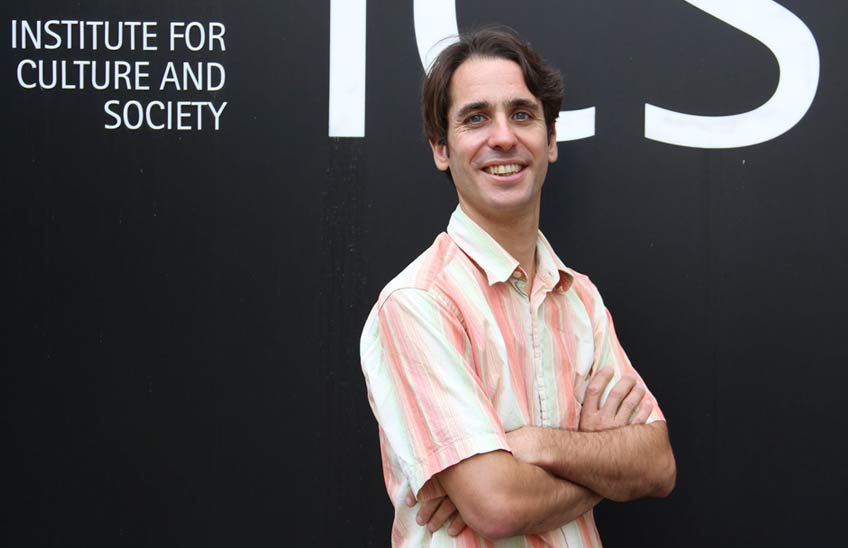Study synthesizes all scientific evidence on the efficacy of mental health treatments for youth and adolescents
The article, in which a researcher of the University of Navarra has collaborated, deals with nearly one thousand international programs of study on 52 mental disorders (ADHD, anorexia, anxiety and depression, autism, etc.).

FotoManuelCastells/Gonzalo Arrondo, researcher of ICS
07 | 10 | 2021
A study in which the University of Navarra has participated synthesizes all the international scientific evidence on the efficacy of mental health treatments for young people and adolescents. Its authors are experts from Europe, North America and Latin America and among them is Gonzalo Arrondo Ostiz, researcher of the Institute for Culture and Society (ICS) of the campus of Pamplona.
The article, published in the journal of psychiatry with the highest international impact, has combined more than one hundred meta-analyses, which have taken into account the programs of study of greater breadth and quality. In total, almost one thousand investigations reporting clinical trials, with thousands of patients included, are covered.
The work analyzes the case of 52 disorders or groups of disorders such as attention deficit hyperactivity disorder (ADHD), anorexia nervosa, anxiety disorders, autism, autism spectrum disorders, bipolar disorder, depressive disorders and schizophrenia, among others.
According to Arrondo, many mental illnesses present clinical manifestations at an early age and become chronic in adulthood. "They interfere with the proper development of children and adolescents and represent one of the main causes of disease burden and disability," he reminds.
In this sense, he emphasizes the need for public health systems to provide the treatments with the best guarantees for patients. "This selection of the most prestigious programs of study is a guideline for making better clinical decisions," he says, because "it includes the therapies with the best evidence of efficacy, acceptance and tolerance.
Pharmacological and non-pharmacological treatments
From agreement with the researcher of the group 'Mind-brain' of the ICS, the analysis suggests that in many cases there are medications that work well, "with acceptable side effects", and in others, some non-pharmacological "could be a mainstay core topic".
Regarding the former, the article review the efficacy of certain drugs in the treatment of ADHD, disruptive behavioral disorders, schizophrenia, depression, mania and anxiety disorders, among others.
It also mentions the following examples of non-pharmacological treatments with proven efficacy: behavioral and social skills therapy for ADHD and conduct disorders; cognitive-behavioral therapy for anxiety, depression and post-traumatic stress disorder; interpersonal therapy for depression; and family therapy for anorexia.
"However," he warns, "there are others that are frequently used despite the fact that no convincing evidence has been found about their usefulness. Some are cognitive training and neurofeedback for ADHD, computerized cognitive training -for emotion detection- in autism; and EMDR or exhibition narrative therapy in post-traumatic stress.
- The article complete.
